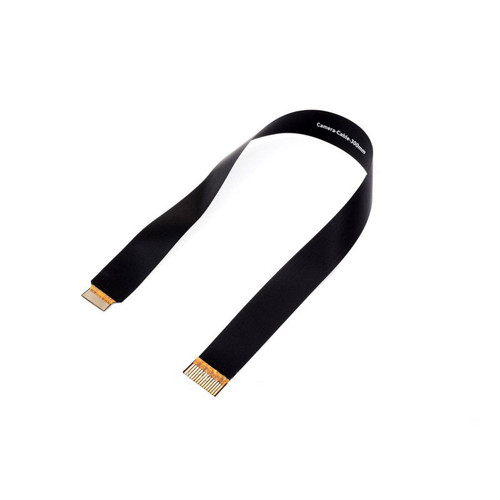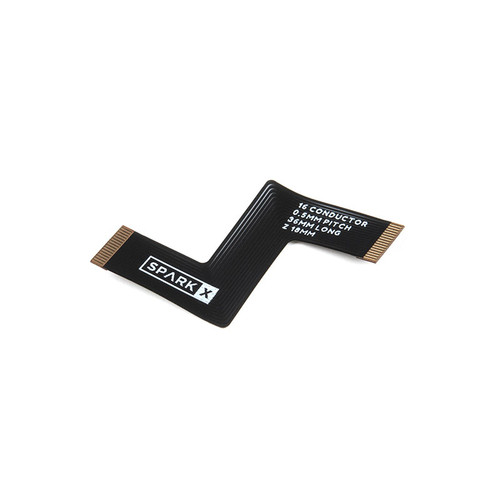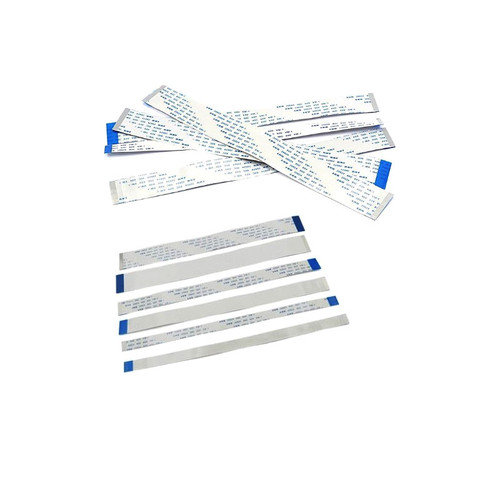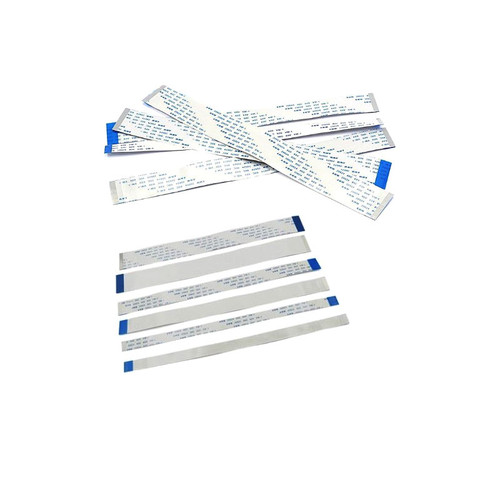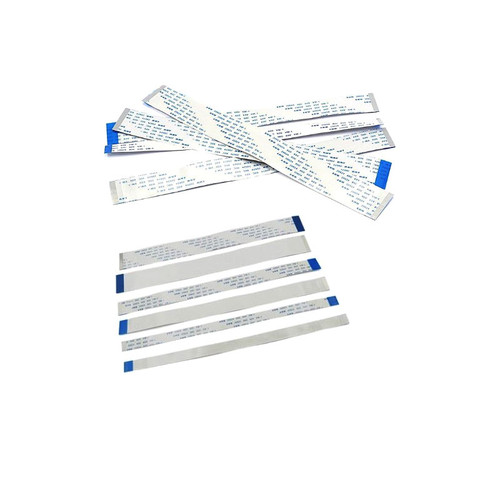Flexible FFC and FPC Cables for High-Density Circuit Solutions
FFC (Flat Flexible Cables) and FPC (Flexible Printed Circuit) Cables are essential components in modern electronics, offering flexibility, durability, and reliability for a variety of applications. From consumer electronics to industrial devices, these cables are widely used in connecting compact, high-density circuits where traditional wiring would be impractical. Whether you’re working on designing electronic systems, developing prototypes, or assembling consumer gadgets, FFC and FPC cables provide an efficient solution for tight spaces and high-frequency applications.
At Evelta, we provide a comprehensive range of
FFC and FPC cables from trusted brands such as SparkFun, Waveshare, and DWIN, ensuring high-quality performance and long-term durability. With a wide variety of pitch sizes, lengths, and pin configurations, these cables are suitable for an array of applications, from connecting cameras and displays to complex industrial control systems. Explore our diverse selection to find the ideal cable for your specific needs.
What are FFC and FPC Cables?
Both
FFC and FPC cables serve as solutions for compact electronic devices, but they differ slightly in their design and applications:
- FFC (Flat Flexible Cables): These are thin, flat cables consisting of multiple flat, conductive wires arranged parallel to each other and encased in a flexible plastic ribbon. They are ideal for connecting printed circuit boards (PCBs) in devices where space is limited.
- FPC (Flexible Printed Circuits): These cables are typically made with thin layers of copper laminated between flexible plastic substrates. The circuitry is printed onto the flexible material, allowing for more complex designs and intricate connections.
Both cable types are frequently used in high-density electronic products, including mobile phones, laptops, televisions, cameras, and other consumer and industrial devices.
Featured Products
At Evelta, we stock a variety of FFC and FPC cables to suit your project's requirements. Below are some of our best-selling products:
- smôl 16Pin 0.5mm pitch 100mm Flexible Printed Circuit: This FPC cable is designed with 16 pins, featuring a 0.5mm pitch and a length of 100mm. Its flexible construction allows it to be used in compact electronic devices, providing reliable, high-speed connections for intricate circuit designs. This cable is perfect for applications where a small form factor and flexibility are critical.
- CSI FPC Flexible Cable for Raspberry Pi 5, 22Pin to 15Pin, 300mm, for CSI Camera: Specifically designed for the Raspberry Pi 5 camera system, this FPC cable features a 22-pin to 15-pin configuration, making it easy to connect the Raspberry Pi Camera Module to the main board. With a length of 300mm, this cable is flexible and durable, ensuring stable and clear video transmission for your camera projects.
- 10Pin 1.0mm Pitch 150mm Opposite Side Contact FFC Ribbon Flexible Flat Cable: This FFC cable features 10 pins and a 1.0mm pitch, making it suitable for a wide range of applications, from consumer electronics to industrial systems. With opposite-side contacts and a length of 150mm, this cable provides a reliable connection in environments where flexibility and durability are crucial.
Key Features and Benefits
When selecting the right
FFC or FPC cable for your project, it’s important to understand the advantages these cables offer, particularly when compared to traditional wiring solutions:
- Flexible and Lightweight: One of the main advantages of FFC and FPC cables is their flexibility. Their slim, flat profile allows them to bend and fold into tight spaces, making them ideal for compact electronic devices such as smartphones, tablets, and cameras. This flexibility enables designers to optimize space and reduce the overall weight of the product, leading to lighter, more portable devices.
- High-Density Connectivity: With their ability to accommodate multiple connections in a compact space, FFC and FPC cables allow for high-density circuit designs. They offer multiple pitch sizes, ranging from 0.3mm to 2.54mm, enabling them to support a wide range of devices with varied connector requirements.
- Reliable Connections: FFC and FPC cables provide reliable and stable connections for complex electronic systems. Their flat, uniform design ensures consistent electrical performance, reducing the risk of signal interference or loss. These cables are perfect for applications that require high-speed data transmission, such as cameras, displays, and communication devices.
- Durability and Long Lifespan: Made from durable materials like polyester or polyimide for insulation and copper for conductors, these cables are built to last. They are resistant to wear and tear, capable of withstanding frequent bending and flexing without breaking, making them suitable for applications that require repeated motion, such as folding smartphones, printers, and robotics.
- Versatile Applications: FFC and FPC cables are used in a wide range of industries, including consumer electronics, automotive, aerospace, medical devices, and more. Their versatility makes them suitable for connecting displays, touchscreens, cameras, sensors, and various other components.
Popular Uses of FFC and FPC Cables
FFC and FPC cables are widely used in several fields due to their flexibility, compact design, and high-performance capabilities:
- Consumer Electronics: These cables are found in many everyday devices such as laptops, smartphones, tablets, and gaming consoles, providing connections between displays, touchscreens, and other internal components.
- Medical Devices: In the medical field, FFC and FPC cables are used in diagnostic equipment, wearable health monitors, and imaging devices where precision and reliability are paramount.
- Automotive: In modern vehicles, these cables help in managing the numerous connections required for infotainment systems, GPS navigation, and dashboard displays.
- Robotics: FPC cables, in particular, are ideal for robotics, where flexibility and movement are necessary. They provide reliable connections that can withstand constant motion and bending.
Conclusion
FFC and FPC cables are critical components in today’s compact and high-performance electronic devices. Their flexibility, durability, and ability to handle complex connections make them an indispensable tool for engineers and designers. Whether you're prototyping a new device, working on a Raspberry Pi project, or developing consumer electronics, Evelta has the FFC and FPC cables you need at competitive prices.

